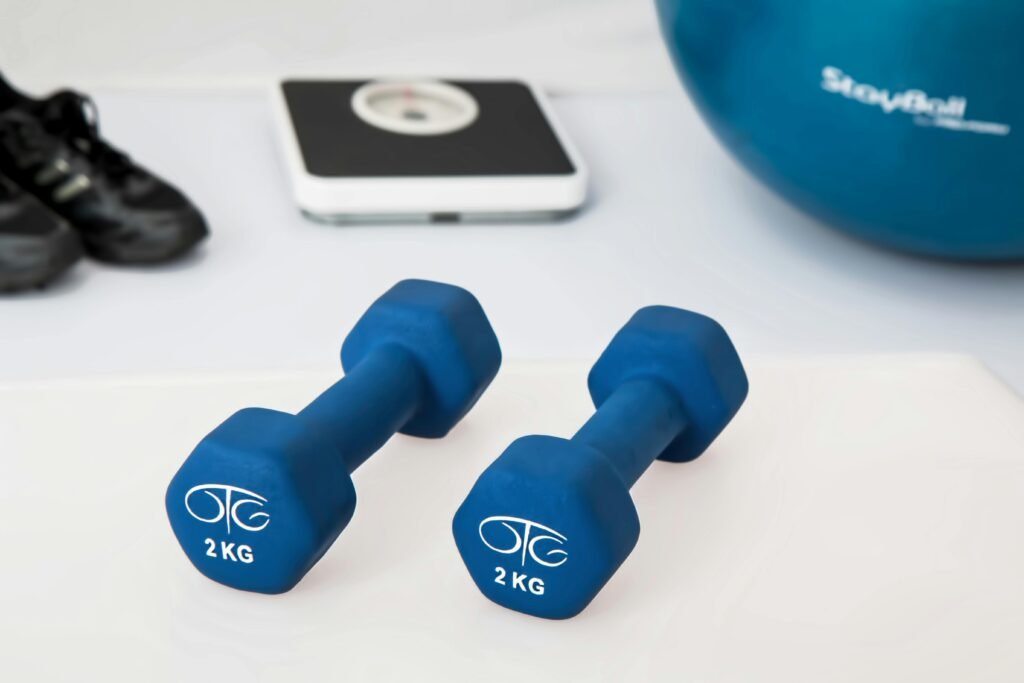Are You Looking to Start Your Recovery Journey?
If you’ve made the decision to embark on your recovery journey, congratulations! It’s an important step towards a healthier and happier life. Whether you’re recovering from addiction, a mental health concern, a physical ailment, or any other obstacle in your life, know that you are not alone. Here, we’ll explore what recovery means, how to get started, and the resources available to support you along the way.
What is Recovery?
Recovery is a process of change through which individuals improve their health and wellness, live a self-directed life, and strive to reach their full potential. It’s about overcoming challenges, developing resilience, and finding a sense of purpose and meaning in life. Recovery is unique to each individual, and it’s not a one-size-fits-all journey. It’s a continual process of learning, growing, and adapting to life’s ups and downs.
Setting Goals for Your Recovery Journey
As you begin your recovery journey, it’s essential to set clear and attainable goals for yourself. These goals can act as a roadmap to guide you towards your desired outcomes, whether it’s sobriety, better mental health, improved physical fitness, or any other aspect of your well-being. Start by identifying what you want to achieve, breaking down your goals into smaller steps, and creating a plan to help you stay on track. Remember, recovery is a process, not a destination, so be patient and kind to yourself along the way.
Building a Support System
One of the most critical aspects of recovery is having a strong support system in place. Surrounding yourself with people who care about your well-being, understand your challenges, and can provide encouragement and guidance is invaluable. Your support system can include friends, family members, healthcare professionals, support groups, mentors, and other individuals who believe in your ability to heal and grow. Lean on your support system during difficult times, celebrate your victories with them, and remember that you don’t have to go through recovery alone.
The Role of Therapy and Counseling
Therapy and counseling can be powerful tools in your recovery journey. Whether you choose individual therapy, group therapy, cognitive-behavioral therapy, or another approach, working with a qualified mental health professional can help you explore your thoughts and feelings, develop coping strategies, and gain valuable insights into your challenges and strengths. Therapy can provide a safe and confidential space to process your emotions, learn new skills, and work towards positive change. Don’t hesitate to reach out for professional help if you feel overwhelmed or stuck in your recovery.
Joining Support Groups and Peer Networks
Support groups and peer networks can offer a sense of community, understanding, and belonging as you navigate your recovery journey. Whether you join a group focused on addiction recovery, mental health support, chronic illness management, or another area of concern, connecting with others who share similar experiences can be incredibly empowering. These groups can provide emotional support, practical advice, and a non-judgmental space to share your struggles and successes. Consider exploring local and online support groups to find the right fit for you.
Embracing Self-Care Practices
Self-care is an essential component of recovery, as it helps you nurture your physical, emotional, and mental well-being. Establishing a self-care routine that includes activities you enjoy, such as exercise, meditation, journaling, spending time in nature, or engaging in creative pursuits, can boost your mood, reduce stress, and improve your overall quality of life. Prioritize self-care in your daily life, listen to your body and mind’s needs, and make time for activities that bring you joy and relaxation. Remember, taking care of yourself is not selfish; it’s necessary for your recovery journey.
The Importance of Healthy Lifestyle Choices
Making healthy lifestyle choices can support your recovery goals and enhance your overall well-being. Eating a balanced diet, staying hydrated, getting regular exercise, and prioritizing sleep can improve your physical health, energy levels, and mood. Avoiding harmful substances, such as drugs and alcohol, and practicing moderation in your habits can also contribute to your recovery progress. Remember to listen to your body, be mindful of your triggers, and make choices that align with your values and goals for a healthier lifestyle.

This image is property of images.pexels.com.
Practicing Mindfulness and Stress Management
Mindfulness and stress management techniques can help you stay present, calm, and grounded during your recovery journey. Mindfulness practices, such as meditation, deep breathing, yoga, and mindfulness-based stress reduction, can reduce anxiety, improve focus, and cultivate a sense of peace and clarity. Learning how to manage stress effectively, through relaxation techniques, time management skills, and healthy coping strategies, can prevent burnout, reduce relapse risk, and enhance your resilience in the face of challenges. Incorporate mindfulness and stress management practices into your daily routine for a more balanced and peaceful recovery experience.
Cultivating Gratitude and Positive Thinking
Practicing gratitude and positive thinking can shift your perspective, boost your mood, and promote a sense of optimism and hope in your recovery journey. Keeping a gratitude journal, reflecting on your blessings, and focusing on the positive aspects of your life can increase your resilience, motivation, and overall well-being. Changing negative thought patterns, challenging self-limiting beliefs, and adopting a growth mindset can empower you to overcome obstacles, learn from setbacks, and stay committed to your recovery goals. Embrace the power of positivity and gratitude as you navigate the ups and downs of your recovery journey.
Seeking Professional Help and Treatment
In some cases, seeking professional help and treatment may be necessary to support your recovery goals effectively. Whether you need medical intervention, psychiatric care, addiction treatment, or specialized therapy, reaching out to healthcare professionals can provide you with the guidance, support, and resources you need to heal and grow. Don’t hesitate to consult with doctors, therapists, counselors, or other professionals who specialize in your specific needs and concerns. Remember that asking for help is a sign of strength, courage, and self-awareness in your recovery journey.
The Benefits of Medication Management and Therapy
If your recovery journey involves medication management, therapy, or a combination of both, it’s essential to work closely with healthcare professionals to optimize your treatment and support your well-being. Medications prescribed for mental health conditions, addiction recovery, chronic pain, or other medical issues can help alleviate symptoms, improve your quality of life, and enhance your recovery progress. Therapy can complement medication by addressing underlying issues, providing emotional support, and teaching you valuable coping skills. Stay informed, ask questions, and communicate openly with your healthcare team to ensure you receive the best possible care for your recovery needs.
Exploring Alternative Therapies and Holistic Approaches
In addition to traditional medical treatments, you may find benefit in exploring alternative therapies and holistic approaches to support your recovery journey. Practices such as acupuncture, massage therapy, yoga, aromatherapy, mindfulness meditation, art therapy, and herbal supplements can enhance your well-being, reduce stress, and promote healing on a physical, emotional, and spiritual level. Consult with holistic healthcare providers, integrative therapists, or wellness coaches to explore complementary options that resonate with your values and goals for recovery. Remember that holistic healing is about treating the whole person, not just the symptoms of your condition.

This image is property of images.pexels.com.
Staying Committed to Your Recovery Goals
Staying committed to your recovery goals requires dedication, perseverance, and self-awareness. It’s normal to face challenges, setbacks, and doubts along the way, but with resilience, support, and determination, you can overcome obstacles and continue moving forward on your journey. Remember to celebrate your progress, acknowledge your achievements, and be kind to yourself through the ups and downs of recovery. Stay connected to your support system, prioritize self-care, and focus on your long-term well-being and growth. Recovery is a journey of healing, transformation, and self-discovery, and your commitment to this process is a testament to your strength and courage.
Celebrating Milestones and Acknowledging Progress
As you navigate your recovery journey, take time to celebrate your milestones, big and small, and acknowledge the progress you’ve made along the way. Whether you’ve achieved a significant goal, overcome a challenge, or learned valuable lessons about yourself, each step forward is worth recognizing and celebrating. Celebrate with your support system, treat yourself to something special, or simply take a moment to reflect on how far you’ve come in your recovery. Remember that progress is not always linear, and setbacks are a natural part of the recovery process. Stay focused on your goals, stay resilient in the face of obstacles, and keep moving forward with determination and hope.
Embracing a Life of Recovery and Growth
Recovery is not just about overcoming challenges; it’s also about embracing a life of growth, resilience, and self-discovery. As you continue on your recovery journey, focus on cultivating a sense of purpose, meaning, and fulfillment in your life. Explore new passions, pursue your interests, build healthy relationships, and engage in activities that bring you joy and fulfillment. Recovery is an ongoing process of learning, evolving, and becoming the best version of yourself. Embrace each day as an opportunity to grow, heal, and thrive in your recovery journey.
Conclusion
As you embark on your recovery journey, remember that you are capable of healing, growing, and creating a life of purpose and meaning. Recovery is a unique and personal journey that requires patience, resilience, and self-compassion. By setting goals, building a support system, practicing self-care, seeking professional help, and staying committed to your recovery goals, you can overcome obstacles, find strength in adversity, and achieve lasting change in your life. Embrace the challenges, celebrate the victories, and trust in your ability to transform your recovery journey into a story of resilience, hope, and growth. You are not alone in this journey, and with determination, courage, and support, you can create a life of recovery, healing, and well-being.

This image is property of images.pexels.com.

